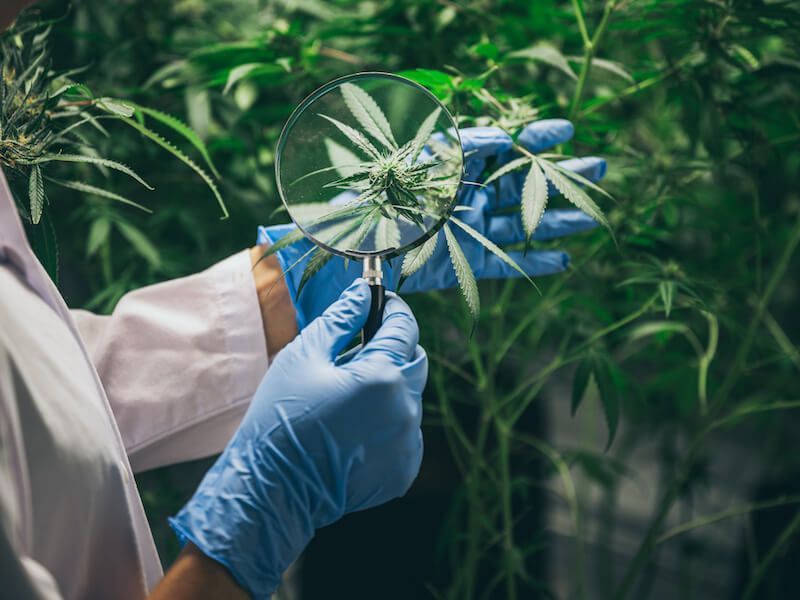The Connection Between Tinnitus and Cannabinoids

Public opinion surrounding marijuana and cannabinoids has changed significantly over the last several decades. Cannabinoids, marijuana, and THC products are now allowed for medical usage in many states. Far fewer states have legalized marijuana for recreational purposes, but even that would have been unimaginable even just ten or fifteen years ago.
Any substances derived from the cannabis plant (the marijuana plant, essentially) are known as cannabinoids. And we’re still discovering new things about cannabis in spite of the fact that it’s recently been legalized in a number of states. It’s a common notion that cannabinoid compounds have widespread healing properties. But research suggests a strong connection between the use of cannabinoids and tinnitus symptoms but there are also conflicting studies.
Many forms of cannabinoids
At present, cannabinoids can be consumed in a number of forms. It’s not only pot or weed or whatever name you want to give it. Other forms can include topical spreads, edibles, pills, inhalable vapors, and more.
Any of these forms that contain a THC level higher than 0.3% are technically still federally illegal and the available forms will vary depending on the state. That’s why many individuals tend to be rather cautious about cannabinoids.
The long-term complications and side effects of cannabinoid use are not well understood and that’s the issue. Some new studies into how cannabinoids impact your hearing are prime examples.
Studies connecting hearing to cannabinoids
A wide array of disorders are believed to be effectively treated by cannabinoids. According to anecdotal evidence vertigo, nausea, and seizures are just a few of the conditions that cannabinoids can benefit. So the researchers wondered if cannabinoids could help manage tinnitus, too.
But what they discovered was that tinnitus symptoms can actually be caused by the use of cannabinoids. Ringing in the ears was documented, according to the study, by 20% of the participants who used cannabinoids. And that’s in individuals who had never experienced tinnitus before. And tinnitus symptoms within 24 hours of consumption were 20-times higher with marijuana users.
Further research suggested that marijuana use could exacerbate ear-ringing symptoms in those who already suffer from tinnitus. So, it would appear, from this compelling evidence, that the relationship between cannabinoids and tinnitus isn’t a positive one.
The research isn’t clear as to how the cannabinoids were consumed but it should be pointed out that smoking has also been connected to tinnitus symptoms.
Causes of tinnitus are unclear
The discovery of this connection doesn’t reveal the root cause of the relationship. It’s pretty clear that cannabinoids have an impact on the middle ear. But it’s much less evident what’s producing that impact.
Research, undoubtedly, will continue. Individuals will be in a better position to make better choices if we can make progress in understanding the link between the many varieties of cannabinoids and tinnitus.
Don’t fall for miracle cures
In recent years, there has been a great deal of marketing hype around cannabinoids. In part, that’s due to changing attitudes associated with cannabinoids themselves (and, to some extent, is also an indication of a desire to turn away from opioids). But some negative effects can come from the use of cannabinoids, especially regarding your hearing and this is demonstrated in this new research.
You’ll never be able to avoid all of the cannabinoid enthusiasts and devotees in the world–the advertising for cannabinoids has been particularly intense lately.
But this research certainly indicates a strong link between tinnitus and cannabinoids. So if you have tinnitus–or if you’re concerned about tinnitus–it may be worth avoiding cannabinoids if you can, no matter how many advertisements for CBD oil you may come across. The connection between cannabinoids and tinnitus symptoms is uncertain at best, so it’s worth using a little caution.
Call Today to Set Up an Appointment
References
https://www.ncbi.nlm.nih.gov/pmc/articles/PMC5855477/
https://www.medpagetoday.com/meetingcoverage/aaohnsf/82180


